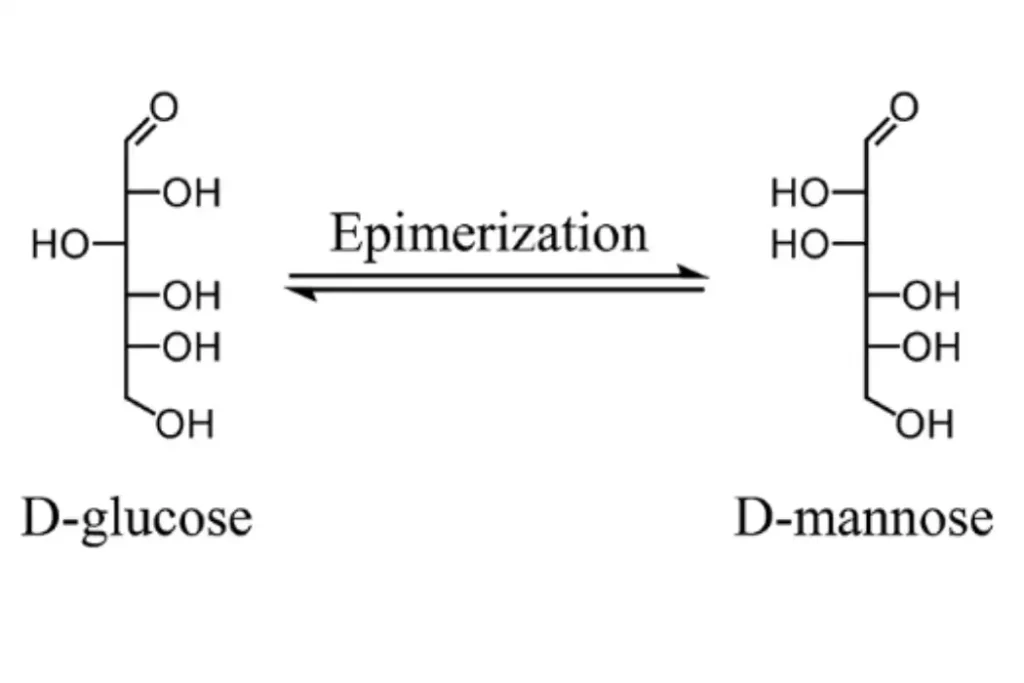In the world of organic chemistry, molecular diversity plays a crucial role in various natural processes and industrial applications. Epimerization, a fascinating phenomenon, lies at the heart of this diversity, driving the creation of multiple stereoisomers from a single compound. Epimerization, being a fascinating phenomenon, serves as an essential source of knowledge in understanding the intricate molecular diversity that exists in various natural and chemical systems. This article aims to unravel the concept of epimerization, explore its significance in diverse fields, and discuss its impact on chirality, drug development, biochemistry, and more.
Understanding Epimerization
What is Epimerization?
Epimerization is a chemical reaction that involves the interconversion of stereoisomers, specifically epimers, which are diastereomers differing in the configuration of only one chiral center. This process leads to the formation of distinct compounds with similar chemical structures but varying biological and physical properties.
How Does Epimerization Occur?
Epimerization can occur through various mechanisms, such as protonation-deprotonation, nucleophilic attacks, and enzyme-catalyzed reactions. The stereochemistry around a single chiral center is altered during this process, resulting in the production of different epimers.

The Importance of Epimerization in Nature
Epimerization in Biological Systems
In living organisms, epimerization plays a pivotal role in the biosynthesis of essential biomolecules, such as carbohydrates, amino acids, and nucleic acids. The ability to interconvert between epimers enhances the structural diversity of biologically active compounds.
Epimerization in Pharmaceuticals
The pharmaceutical industry extensively studies epimerization due to its potential impact on drug stability, bioavailability, and therapeutic efficacy. Understanding how epimers behave under various conditions is crucial for drug development and formulation.
Factors Influencing Epimerization
Temperature and Pressure
Environmental factors like temperature and pressure can significantly influence the rate of epimerization reactions. Understanding these effects is crucial for maintaining the stability and quality of products in various industries.
Solvent Effects
The choice of solvent can affect the epimerization process, with some solvents promoting the conversion of one epimer to another. Proper solvent selection is essential in controlling the outcome of epimerization reactions.
Catalysts and Enzymes
Catalysts and enzymes can accelerate epimerization reactions, making them vital tools in organic synthesis and biochemical processes. Understanding their role can aid in optimizing reaction conditions and achieving desired outcomes.
Analytical Techniques for Studying Epimerization
Nuclear Magnetic Resonance (NMR)
NMR spectroscopy provides valuable insights into the molecular structure and dynamics of epimers, allowing researchers to study their interconversion and behavior in various environments.
High-Performance Liquid Chromatography (HPLC)
HPLC is a powerful analytical technique used to separate and quantify different epimers in complex mixtures, aiding in pharmaceutical analysis and quality control.
Mass Spectrometry (MS)
MS enables the accurate determination of molecular mass and fragmentation patterns, facilitating the identification and characterization of epimers.
Epimerization and Drug Development
The impact of epimerization on drug molecules is a critical consideration in pharmaceutical research. The existence of multiple epimers can lead to varying pharmacological activities, affecting the overall efficacy and safety of drugs.
Epimerization in Organic Synthesis
Epimerization Reactions
Organic chemists use epimerization reactions as a valuable tool to selectively modify specific chiral centers in molecules, leading to the synthesis of complex compounds.
Synthetic Strategies to Control Epimerization
Controlling the outcome of epimerization reactions is vital in organic synthesis. Researchers develop innovative strategies to ensure the formation of the desired stereoisomer.
Epimerization in Food Science
Epimerization of Sugars
The epimerization of sugars influences their sweetness, texture, and stability in food products, impacting the overall taste and quality.
Flavor and Taste
Understanding how epimerization affects flavor compounds helps food scientists create unique and appealing sensory experiences.
Epimerization and its Role in Biochemistry
Epimerization of Carbohydrates
Carbohydrates are central to many biochemical processes, and their epimerization plays a crucial role in the synthesis of glycosides and other bioactive molecules.
Epimerization of Amino Acids
Epimerization of amino acids can lead to changes in the structure and function of proteins, impacting various physiological processes.
The Impact of Epimerization on Chirality
Chiral Molecules and Stereochemistry
The concept of chirality is fundamental to understanding epimerization and its impact on the properties of molecules.
Enantiomers and Diastereomers
Epimerization results in the formation of enantiomers and diastereomers, each with unique characteristics that influence their behavior in biological and chemical systems.
Epimerization and Medicine
Epimerization of Therapeutic Agents
The occurrence of epimerization in pharmaceuticals can lead to changes in drug potency, bioavailability, and pharmacokinetics.
Clinical Implications
Understanding the impact of epimerization on drug metabolism is vital for healthcare professionals to optimize drug therapies and manage patient outcomes effectively.
Epimerization and the Environment
Epimerization of Environmental Contaminants
Epimerization can transform environmental pollutants, influencing their toxicity and persistence in ecosystems.
Ecotoxicology Considerations
Studying the epimerization of environmental contaminants is crucial in assessing their environmental impact and developing effective remediation strategies.
Epimerization and Peptide Chemistry
Peptide Epimerization
Epimerization of amino acids in peptides can influence their biological activity and stability, with potential applications in drug design and biomedical research.
Applications in Drug Design
Understanding peptide epimerization opens up avenues for developing innovative drug delivery systems and therapeutics.
Conclusion
Epimerization, a captivating chemical process, plays a crucial role in shaping molecular diversity and has significant implications in fields ranging from drug development to food science. Understanding and harnessing the power of epimerization opens new avenues for scientific exploration and innovation.


